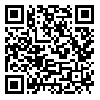BibTeX | RIS | EndNote | Medlars | ProCite | Reference Manager | RefWorks
Send citation to:
URL: http://payavard.tums.ac.ir/article-1-9-en.html

 1, Seyyed Mostafa Hosseini
1, Seyyed Mostafa Hosseini 
 , Seyed Shahab Hosseini
, Seyed Shahab Hosseini 
 , Elham Movahed Kor
, Elham Movahed Kor 
 , Mohamad Amerzadeh
, Mohamad Amerzadeh 

Background and Aim: Self-reliance is a psychological belief that is formed in an individual during growth and is not changed easily and quickly.
The present study aims to evaluate the relationship between nursing managers' self-reliance and patients' satisfaction in hospitals affiliated to Tehran University of Medical Sciences(TUMS).
Materials and Methods: In this cross-sectional study, 400 individuals(200 nursing managers and 200 patients) were interviewed in various clinical wards of TUMS hospitals. Nursing managers' self-reliance and patients' satisfaction were evaluated using a structured questionnaire.
The data were entered into Stata 11 software and analyzed with non-parametric ANOVA and Spearman's correlation coefficient tests. The significance level was determined to be p<0.05.
Results: Of the nursing managers, 58(29%) were male and 142(71%) were female. The mean and SD of their self-reliance were 134.9 and 19.8, respectively. The patients, however, comprised 81(40.5%) males and 118(59.5%) females. The mean and the standard deviation of patients' satisfaction were 57 and 18.2, respectively the only individual factors affecting their level of satisfaction were educational level(p<0.005) and insurance status(p<0.0001). Besides, a multivariate analysis showed that there was a significant negative association between managers' self-esteem and patients' satisfaction(P=0.04).
Conclusion: The findings revealed that female managers had less self-esteem than male managers. Moreover, it showed that managers' higher self-esteem would cause patients' lower satisfaction. Furthermore, patients with higher education and/or with health insurance were more satisfied than others.
| Rights and permissions | |
 |
This work is licensed under a Creative Commons Attribution-NonCommercial 4.0 International License. |



